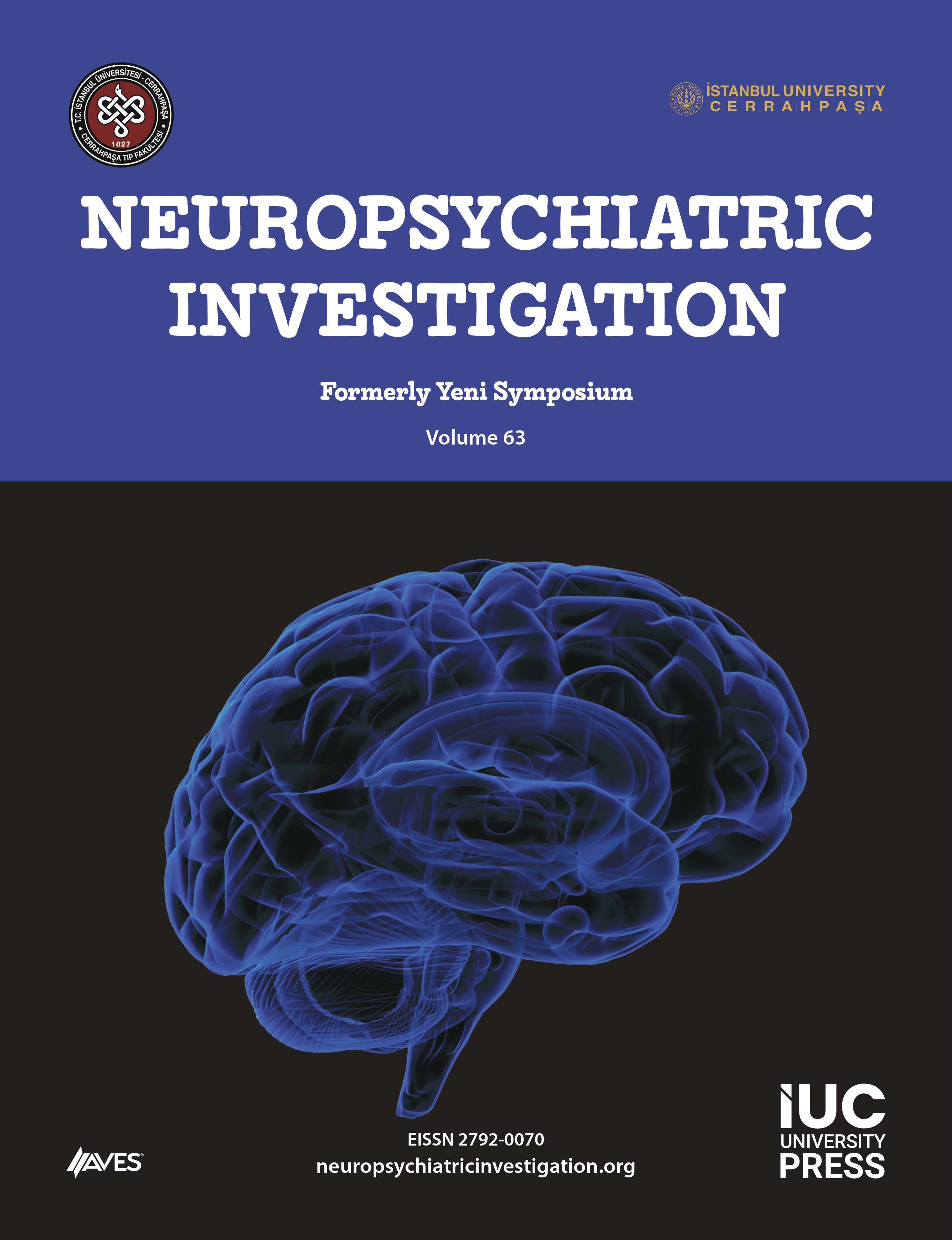Objective: Separation anxiety disorder is a disorder with childhood-onset, which manifests itself also in adulthood and is often comorbid with other psychiatric disorders. However, its relationship with major depressive disorder has been less studied. This study aims to investigate the prevalence of adult separation anxiety disorder in the geriatric population with major depressive disorder and identify the determinants of adult separation anxiety disorder.
Methods: Eighty-five patients aged 60 and over, diagnosed with major depressive disorder according to the Diagnostic and Statistical Manual of Mental Disorders, fifth edition were evaluated through the Structured Clinical Interview for Separation Anxiety Symptoms, The Standardized Mini-Mental State Examination, Beck’s Depression Inventory, Beck Anxiety Inventory, and Adult Separation Anxiety Questionnaire.
Results: The comorbidity of adult separation anxiety disorder in patients with major depressive disorder was found as 49.4% (n = 42). While there was no statistically significant difference between the adult separation anxiety disorder + major depressive disorder group and only major depressive disorder group in terms of age, sex, education, marital status, income level, medical diseases, and death of a loved one (P > .05), prolonged separation from parents before the age of 3, prevalence rates of severe depression, Beck Anxiety Inventory scale scores were found to be statistically significantly higher in patients diagnosed with major depressive disorder + adult separation anxiety disorder compared to those diagnosed only with major depressive disorder (P < .05). Beck Anxiety Inventory mean scores and severe depression were found as the determinants of adult separation anxiety disorder.
Conclusion: Major depressive disorder diagnosis in the geriatric population is highly associated with adult separation anxiety disorder. Questioning of adult separation anxiety disorder in elderly individuals especially with severe depression, rather than focusing on general anxiety symptoms, may contribute to psychotherapeutic and psychopharmacological treatment approaches.
Cite this article as: Yıldırım F, Beşirli A. Adult separation anxiety disorder in the geriatric population with major depressive disorder. Neuropsychiatr Invest. 2022;60(1):22-27.




.png)